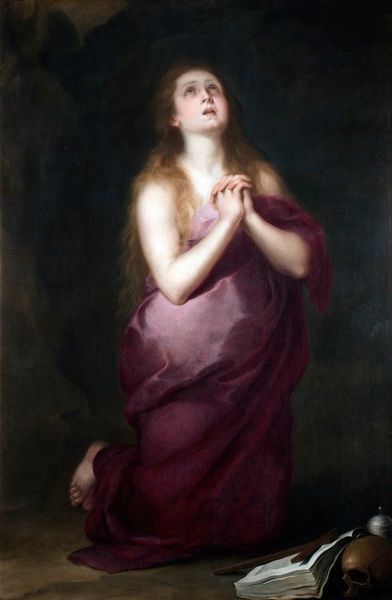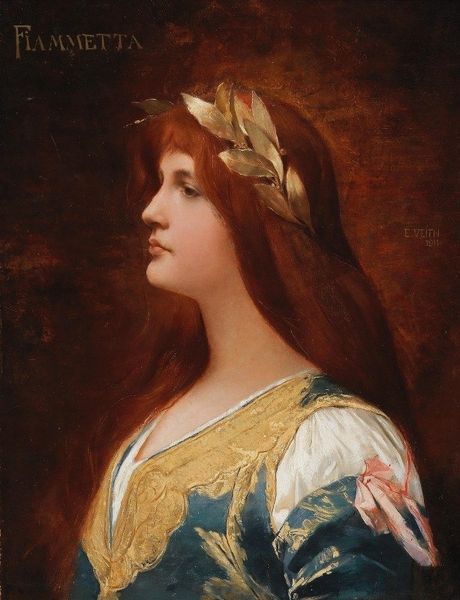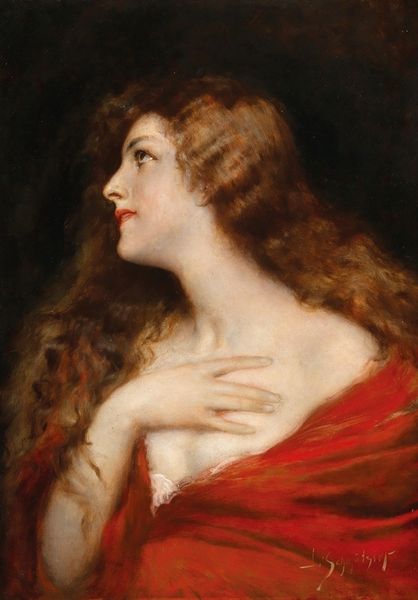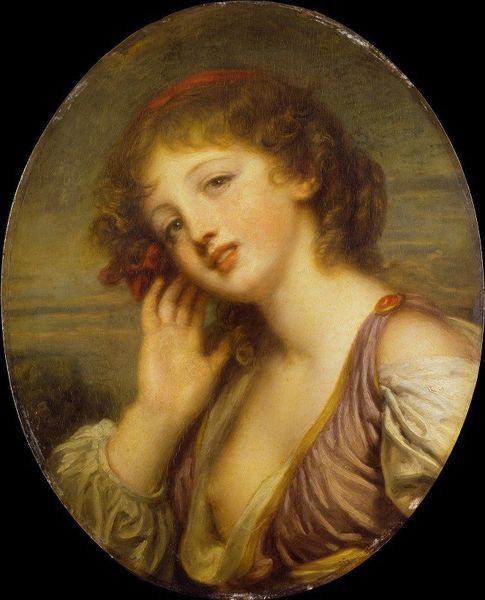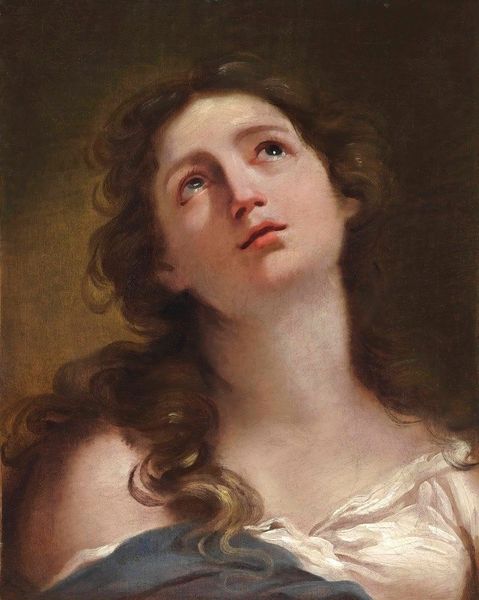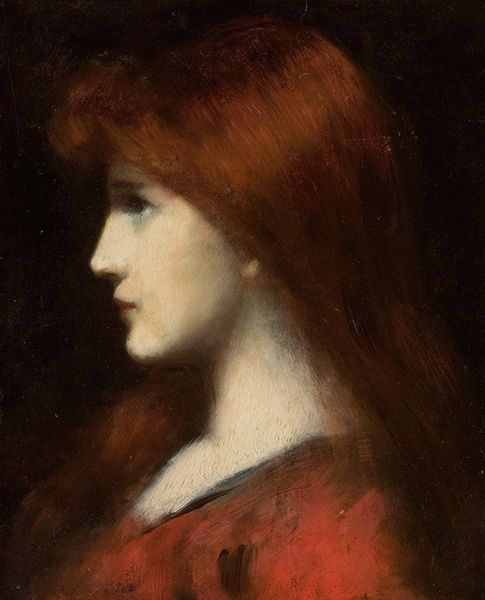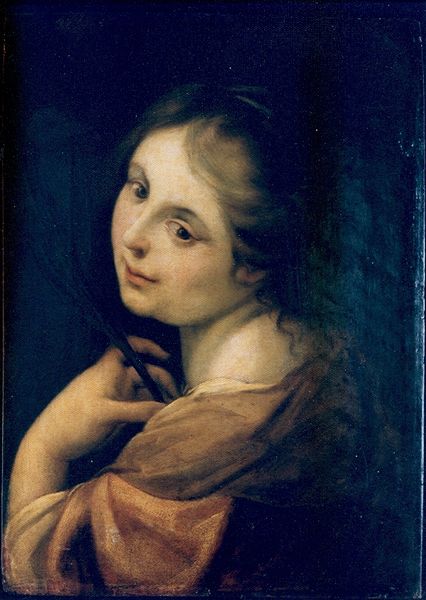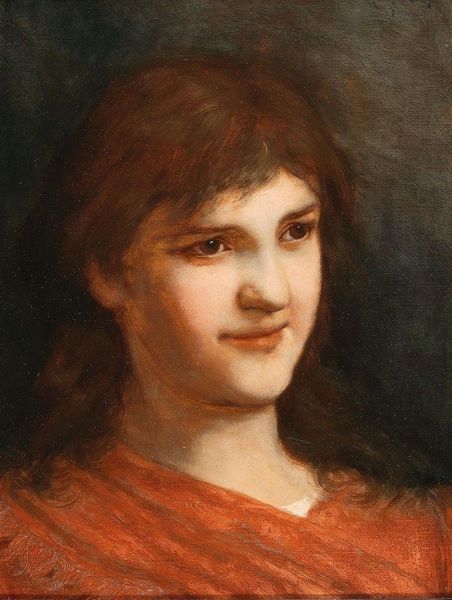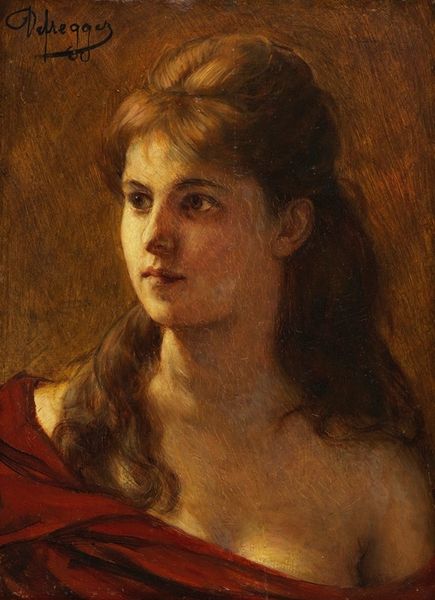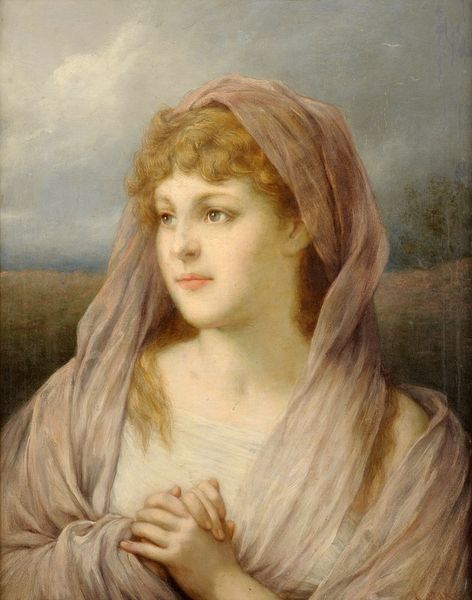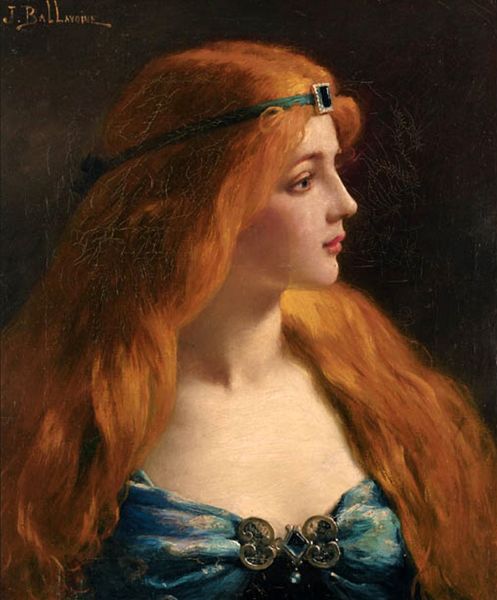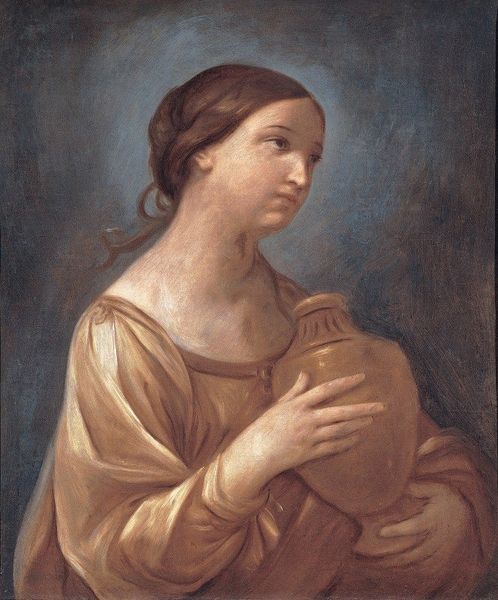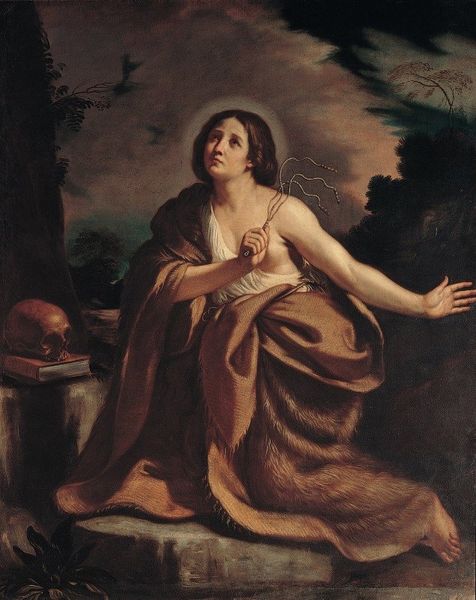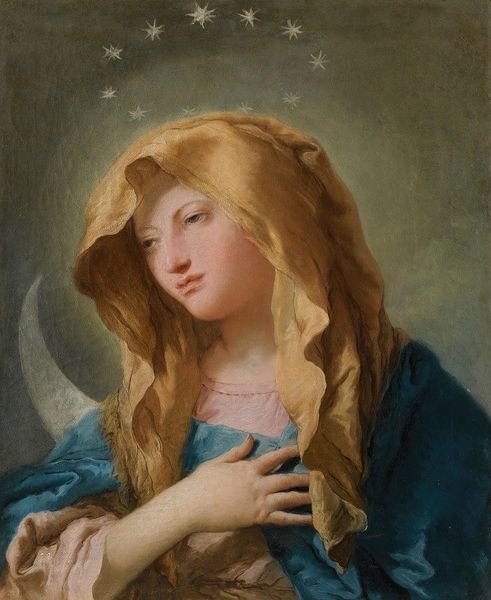
Copyright: Public Domain: Artvee
Editor: We're looking at "Portrait of a Lady" by Benjamin West, from the late 18th century, painted in oil. The subject's upward gaze and the dramatic lighting give the portrait a very idealistic and romantic feeling. What strikes you most about this piece? Curator: The seemingly simple title "Portrait of a Lady" belies a complex intersection of identity, societal expectations, and artistic license during the Romantic era. Note the Neoclassical composition contrasted with the woman's "exotic" turban; how does this blend speak to you about the construction of femininity and otherness in that period? Editor: It does feel like there’s a contrast. The face seems almost classical, but the turban definitely feels like it's referencing something else, almost… theatrical? Curator: Exactly! And it invites critical engagement: is it purely aesthetic, a comment on trade and empire, or an exploration of the sitter’s identity? Further, consider her demure pose and the implications of idealizing female beauty within a patriarchal structure. Is she empowered or objectified, or is it perhaps both? Editor: I never thought about how her pose plays into the bigger picture of how women were viewed at the time. I guess I always just took it at face value, you know, pretty lady in a painting. Curator: Precisely. And isn’t that the most powerful aspect of art: to prompt reevaluation and dialogue across generations? By understanding the socio-political context, we recognize art's profound capacity to mirror and challenge our perceptions of gender, race, and power. Editor: It really gives a new perspective on this portrait. Thanks, it's much more thought-provoking now! Curator: Indeed! And thinking about West as an American artist working in Europe also highlights the global exchange of ideas during the Enlightenment.
Comments
No comments
Be the first to comment and join the conversation on the ultimate creative platform.
